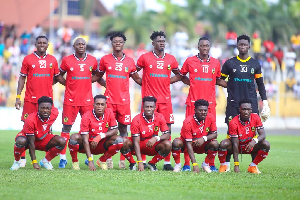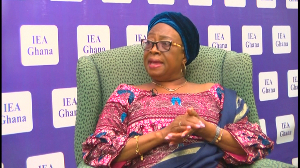If the roadmap drafted by the Inter-Ministerial Committee on Small-Scale Mining has been implemented effectively, there would not have been another incident of a pit cave in on illegal small-scale miners (galamseyers) at Akrokerri in the Ashanti Region, the Member of Parliament for Manso Adubea, Yaw Frimpong Addo, has said.
The lawmaker explained that the activities outlined in the roadmap are enough to serve as disincentives for the galamserys to desist from their activities and take advantage of the government programme.
Several galamseyers were buried alive deep within the belly of a mining pit that caved in on Thursday, 18 July 2019 in the Adansi North District.
It is not clear how many people were swallowed by the pit but one body was pulled out by rescuers the same day.
One injured survivor is recovering at the hospital.
The Government of Ghana, in dealing with the galamsey menace, set up the IMCIM with the Minister of Science, Technology, Environment and Innovation; Prof. Kwabena Frimpong Boateng as its chairperson.
The committee, as part of its work, recommended an initial 6-month ban on small-scale mining activities, a request to which the President gave his assent. After almost two years, the ban on legal and regularised small-scale mining was lifted. Illegal small-scale mining is, however, under a perpetual ban.
The government, as part of the directives it gave to the committee, was to carry out certain activities to bring sanity into the artisanal gold mining sector.
These, among other important directives, were the launch of Operation Vanguard, comprising personnel from the army and police service tasked to prevent further pollution of water bodies and land degradation, the training of small-scale miners in sustainable mining methods at the George Grant University of Mines and Technology, Tarkwa; and the deployment of satellite imagery and drone technology to monitor the mining activities of illegal miners.
Currently, 600 miners have been trained while 1,500 miners are receiving training in sustainable mining practices.
The government has also ratified the Minamata Convention on Mercury, the 40th state party to have done so. The objective of the Minamata Convention is to protect human health and the environment from anthropogenic emissions and releases of mercury, and mercury compounds into the environment.
But in the view of the Manso Adubea lawmaker, the roadmap was not implemented well to fully benefit the people.
He told Kwabena Prah Jnr on the Ghana Yensom show on Accra 100.5FM on Friday, 19 July 2019 that: “In my view, we didn’t do well with the implementation of the road map by the Inter-Ministerial Committee otherwise there wouldn’t have been another cave-in. We need to scale-up the implementation.
“For instance, if the Community Mining Project had been started as part of the roadmap, it would have been the best option for the miners to prevent them from engaging in galamsey.
“The government would have benefited from it, the youth would also have been doing decent mining.”
“It is unfortunate that we witnessed that incident,” he added.
General News of Friday, 19 July 2019
Source: classfmonline.com

















